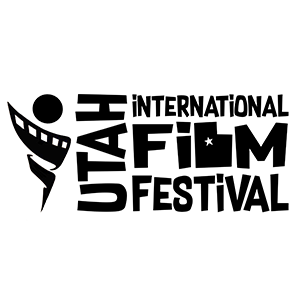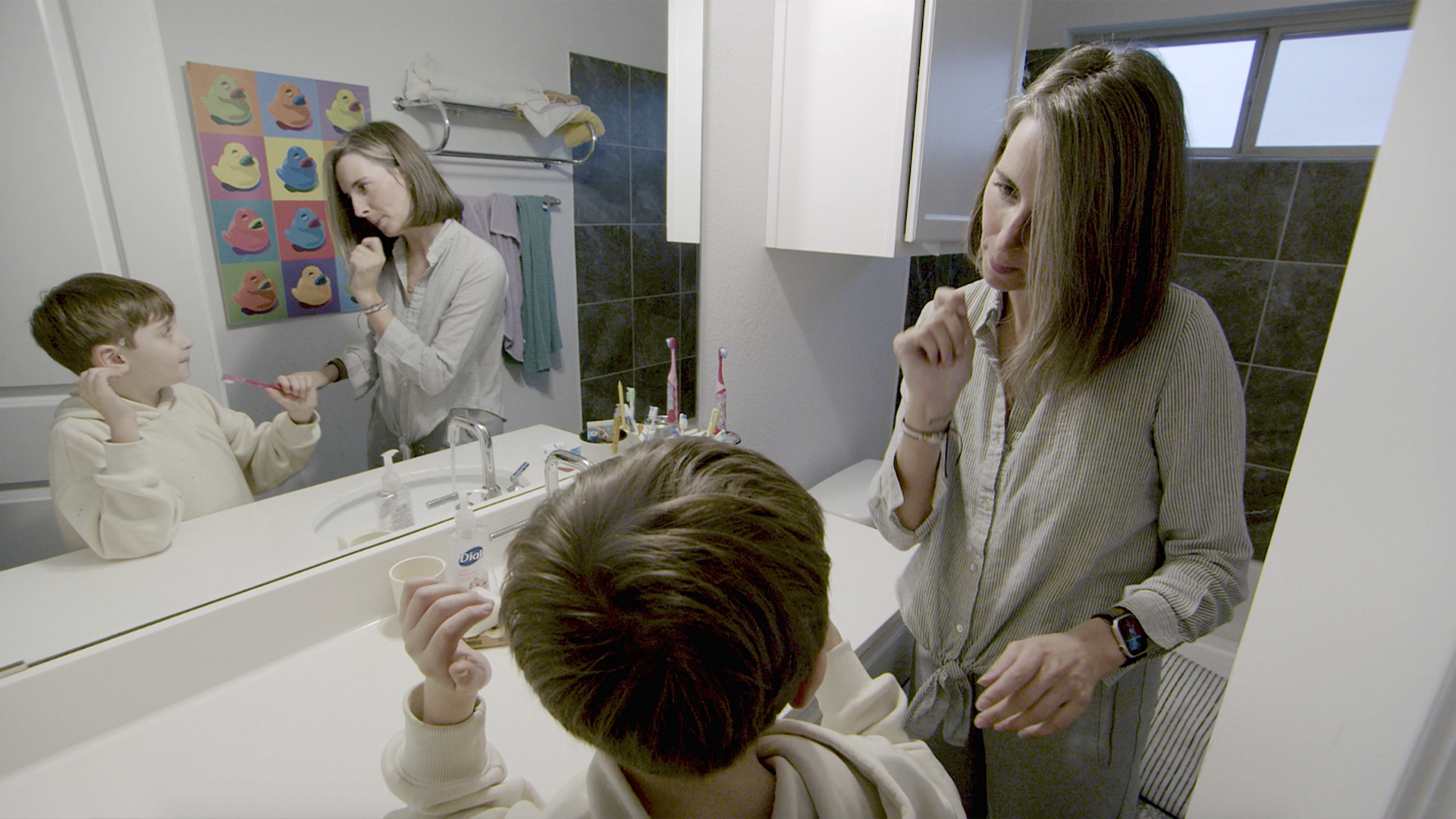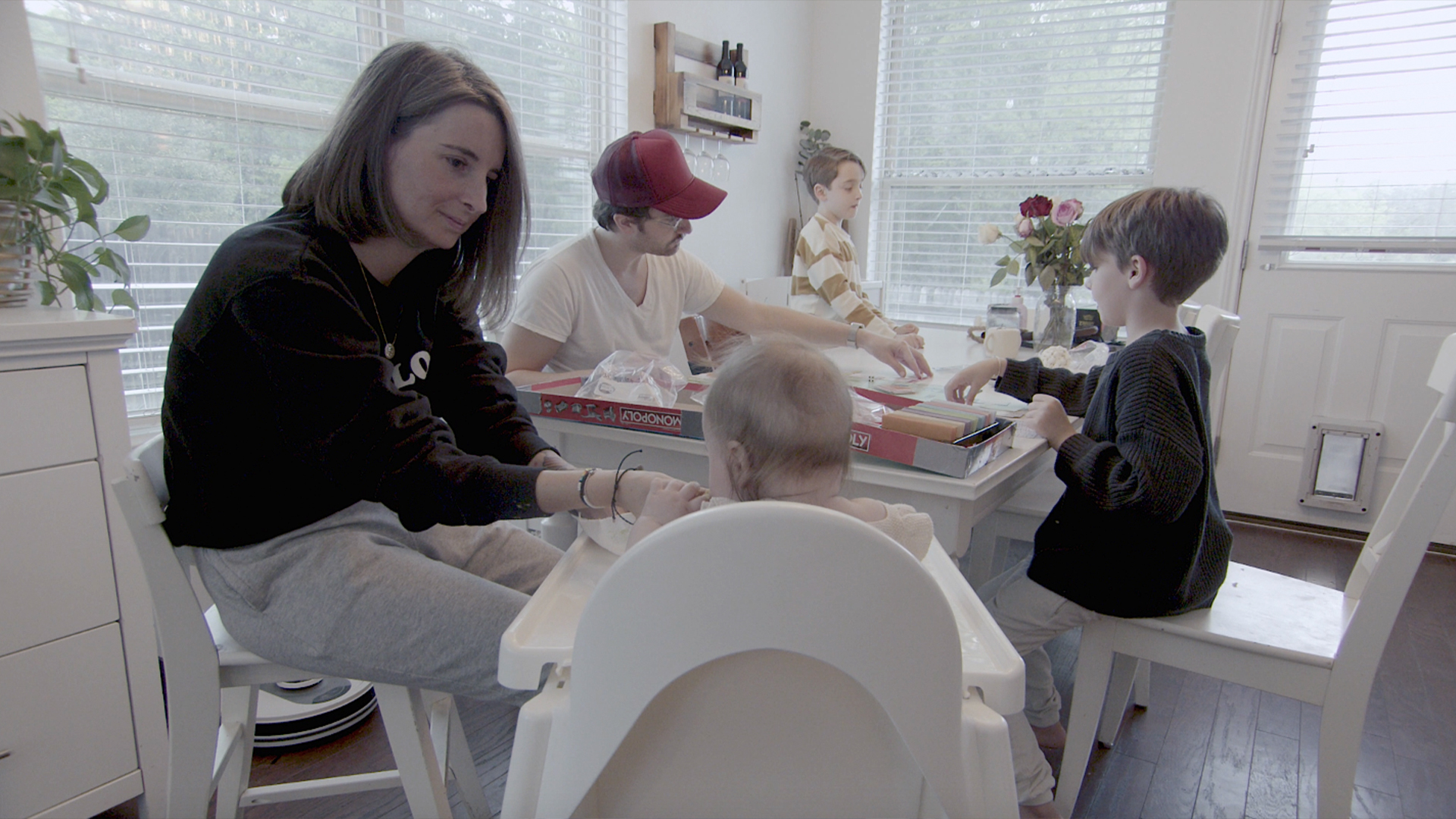Advocating for Autism in “Who Speaks for Charlie?

In a world where the voices of the unheard often disappear in the wind, Eileen Lamb, a passionate advocate for the autism community, finds herself at the center of a powerful documentary, “Who Speaks for Charlie?” The film, directed and produced by Matthew Corolis, explores Lamb’s personal journey as she grapples with her own autism diagnosis and confronts death threats from members of the autistic community.
The story unfolds with Eileen Lamb reflecting on her unique family dynamics, where her two sons, Jude and Charlie, both navigate the vast spectrum of autism—one talkative and the other non-verbal. Corolis stumbled upon Lamb’s story while scrolling through TikTok.
“This contrast really struck me, and when I clicked on Eileen’s profile and looked at her blog, The Autism Cafe, I learned that she herself is autistic as well” said Corolis. “Having written two books, I quickly read the one that Eileen wrote about her upbringing and starting a family, All Across the Spectrum. All of this, paired with Eileen being a fierce advocate fighting for greater awareness about profound autism, and the importance of stopping the spread of misinformation about autism online, made Eileen and her family the perfect subjects for a documentary.”
As the crew delves into the production process, the narrative takes an intimate turn, focusing on the Lamb family’s experiences at Charlie’s Applied Behavior Analysis (ABA) center. This choice sparks controversy within the autism community, where misinformation surrounds the effectiveness of ABA therapy. Corolis, along with cinematographer Allen Sanders and sound engineer Gerald Morris, navigates the challenges of filming in a sensitive environment while respecting the privacy of other children at the center.
“I spent a lot of the two months of pre-production discussing with Eileen about her family and their schedules, as I knew that this would be a particularly challenging piece.”
One highlight of production is the revelation of the ABA center as a space for play-based learning, emphasizing the importance of creating a supportive environment for children like Charlie. The crew witnesses the dedication of behavior analysts, therapists, and staff working to impart essential life skills to children with autism, showcasing the positive impact of ABA therapy.
“This is a place where Charlie goes to learn basic life skills, that most people take for granted. Ultimately, I learned that it is a place for play-based learning, meant to help keep Charlie safe.”
However, challenges arise, particularly in ensuring the privacy of other children during filming. Corolis underscores the importance of having a trustworthy crew and the need to minimize disturbances while capturing authentic moments in the ABA center.
“There were many moments where I was cooped up in the behavior analyst’s office with the monitor and headphones, observing from afar, so as to have as few people to work around as possible. This made having a trustworthy crew extremely important.”
Despite the hurdles, the director expresses satisfaction with the project, emphasizing the importance of embracing challenges in documentary filmmaking. For aspiring filmmakers, Corolis offers advice to take the leap, emphasizing that a massive budget or a professional crew is not a prerequisite. He encourages creatives to learn from failures, emphasizing that each attempt brings valuable lessons and contributes to growth in the craft.
“To make a documentary, all you really need is your phone and a decent lav microphone. You don’t even need lights. I directed an entire project “Cancer Divided” in Tanzania in 2018 with no lights, just natural light; we blew the lights out right after plugging them in, due to voltage issues. I think that it’s critical for any creative to embrace the challenges that come their way, knowing that yes, they will fail; and that’s okay. With Who Speaks for Charlie? being my fourth documentary project, I can assure you that I’ve learned something new with each documentary attempt. There’s never going to be the perfect time to make a documentary.”
“Who Speaks for Charlie?” takes center stage as an official selection in the Utah International Film Festival, scheduled for February 12-17. The film will light up the screen of Maven Cinemas in American Fork, UT, providing audiences with an opportunity to witness Eileen Lamb’s advocacy journey and the complexities of raising a non-verbal autistic son.
For those eager to explore Matthew Corolis’s future projects, his Instagram @matthewcorolis and IMDb https://www.imdb.com/name/nm8975368/ serve as portals to his creative endeavors, inviting audiences to delve into the world of documentary filmmaking and advocacy through the lens of “Who Speaks for Charlie?”







